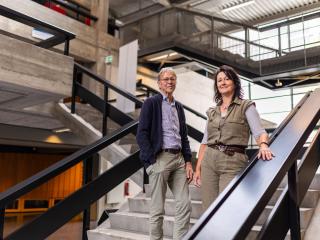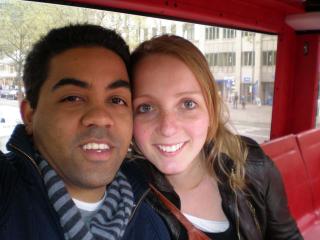"Creating impact should be in the DNA of your research"
PhD students who want to create impact with their research can follow the PhD Valorisation Program. The six-month training, organized by the THRIVE Institute in collaboration with Tilburg University's Impact Team, concluded in September 2023. Amber, Dagmar and Shakya share what they have learned and how they hope to create maximum social value with their research findings. "I now know how to network and maintain connections." During the closing session, participants received their certificate.
fltr on the header: Juliëtte Boughouf (Thrive), Amy Locklear, Shakya Wickramanayake, Dagmar Punter, Ketaki Diwan, Amber Kersten, Isabelle Hommes (Thrive)
What did you learn from the valorisation training?
Amber: "Together with other PhDs you reflect on what is your goal, who is the end user of your acquired knowledge, how do you establish contacts, how do you create impact with your findings, what do you encounter? This way, I always came out of the training with a to-do list. All in all, I learned essential skills in a safe arena, in group meetings, and 1-on-1 coaching sessions."
Shakya: "I learned how to create awareness for my research results on platforms like LinkedIn, and how to monetize my product and know-how. Monetization is not an issue now but will come up later. Especially women, from similar cultures to mine, find it difficult to negotiate in search of funding."
Dagmar: "When I read about this training, I immediately knew, this suits me exactly. The topics really appealed to me. I now know better how to communicate my findings and how to develop them in teaching or a workshop with students. But also, in what ways you can work towards funding or valorisation after your PhD.”
Amber: "Many scientists think valorisation only comes at the end. Yet there is already enough in your backpack along the way that is valuable for practice. You really don't have to wait to valorise until you have your PhD or are a professor."
The program helped me discover what kind of scientist I am
Dagmar Punter
Dagmar: "The program helped me discover what kind of scientist I am. Do I go for publishing or also other output like teaching? What suits my character? I realize more now that I don't have to hide away my passions, they also make me a scientist. On that basis, you make choices. Science does not have to be value-free. It was nice to hear that other participants are also working on this and want to achieve more with their research."
Shakya: "It has become clearer to me how to network, how to approach new contacts, and cultivate existing connections. With three years to go, I have learned to anticipate the next phase of my career. The end of this training is the start of my journey, a marathon of writing, learning, adapting, and improving."
What impact do you expect to realize?
Amber: "The collaboration with TNO already means that I bridge the gap to practice. I present my theoretical conclusions to employers and discuss with them how to become more inclusive. Hiring people is one thing, but often policies need to be adjusted to achieve a sustainable working relationship."
Shakya: "The partners in the consortium are very interested in my research. Hopefully, they will gain insights during the case studies that we discuss confidentially and provide solutions to their problems. I also hope the collaboration with industry will take my research to the next level."
Dagmar: "I discovered that I already do a lot when it comes to making impact. For example, out of my lessons to children at the IMC Weekend School Amsterdam, I got beautiful images and insights, which in turn impacted my own research. School visits, podcasts, blogs, and science festivals make my research richer. How can I make my activities work even more for my research in the next three years?"
Valorisation does not come naturally in the PhD track. That is why I highly recommend the training. Senior colleagues now come to me asking how I approach valorisation.
Amber Kersten
Amber: "I work with Career Jumpstart, at Fontys in Eindhoven. Together, we help companies move forward through joint research with themes such as neurodiversity and inclusion."
Dagmar: "Through my extra activities, I show what a (social) scientist does. That is also valorisation. Then comes the question of how my findings can be translated into policy and made valuable for professionals in the field. NGOs, for example, could use my concepts."
Shakya: "I hope to make my findings accessible through blogs, memos, and workshop presentations. During my law studies, I was already writing for a national newspaper in Sri Lanka as a journalist. In Tilburg, I added a science communication training. Popularizing research is important to me. Communicating the essence of my research to a wider audience also means creating impact."
Amber: "I see valorisation as an integral part of my role as a scientist. Creating impact should be in the DNA of your research and is becoming increasingly important. You shouldn't just write up findings in a complex way and put them behind a paywall, they should be brought to practice. I also push hard for impact within my department. Senior colleagues now come to me asking how I approach valorisation. Valorisation does not come naturally in the PhD track. That is why I highly recommend the training."
Introducing Amber (TSB/HRS)
Amber Kersten is a third-year PhD student at Human Resource Studies (TSB) in collaboration with TNO. She followed the valorisation program at a stage when she already wanted to do something concrete with her findings. Late 2024 follows the defense of her thesis. Roland Blonk (supervisor), Marianne van Woerkom (co-supervisor), and Goedele Geuskens (external co-supervisor) are her supervisors.
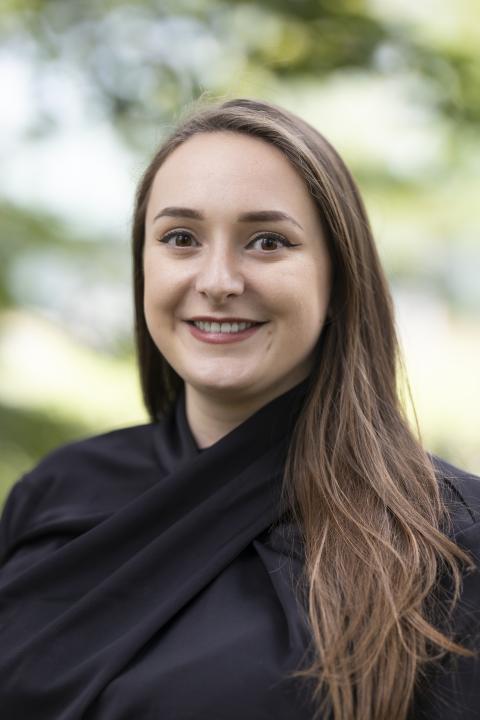
You shouldn't just write up findings in a complex way and put them behind a paywall
Amber Kersten
Amber investigates inclusive employment practices. What can employers do to be more inclusive of vulnerable groups in the labor market. Think of people with a physical disability, migration background, or ADHD. What barriers are there? What options are employers using (not yet)? What appear to be successful practices?
TNO's Employers' Labor Survey (WEA) provided a lot of (confidential) information on the inclusion policies of 1,600 employers, from the bakery around the corner to companies with more than 1,000 employees. Have vulnerable people been hired and why (not)?
Amber: "Many employers are quite willing to hire vulnerable target groups but often don't know how. Then it helps to present evidence-based options. Quite new in my approach is the use of positive psychology. You then focus on what is going well and how to build on it. I then ask employers to look at someone's strengths rather than shortcomings. An employer with a positive mindset sees more opportunities."
Ambition? "A new sound in the scientific field. And to bridge the gap between science and practice. That companies say we can do something with her findings."
Introducing Dagmar (TSHD, CC)
Dagmar Punter studied and lectured political science (UvA) specializing in conflict studies. She started her PhD in Tilburg last year and hopes to defend her thesis in 2026. Juliette Schaafsma and Jan Engelen (TSHD, Department of Communication & Cognition) are her supervisors.
Her research is about everyday perceptions of peace. How do people define and visualize the concept of peace? And how are these perceptions formed? In the literature, peace is mostly seen as the absence of war and is usually examined in conflict settings.
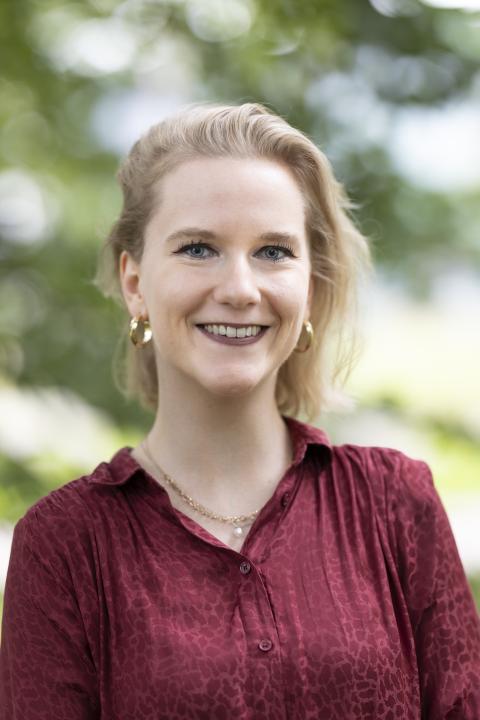
I now know better how to communicate my findings and how to develop them in teaching or a workshop with students
Dagmar Punter
Dagmar collects a wide range of everyday ideas about peace. Last September, during the Betweter festival in Utrecht festival visitors could draw peace but also select existing images of peace. Do they choose the white dove of peace, or a picture taken by local communities from Colombia?
In workshops at schools, kids could work as social scientists themselves and Dagmar asked them to think about what their ideal Netherlands looks like. It strikes her that children know very well what is going on in the world and therefore they have an important voice in how we can best live together.
Dagmar: "Since peace means something different to everyone, I am curious to know how perceptions of peace are formed and which images best fit how people think about peace. My idea is that the more people think about peace and can visualize it, the easier perhaps the step towards a peaceful society."
Ambition? "Besides science or working at an NGO, I can imagine a job in education. After all, I really enjoy interacting with students, discussing world news and making abstract topics concrete."
Introducing Shakya (TLS/TiLT)
Shakya Wickramanayake is a second-year PhD student at the Tilburg Institute for Law and Technology (TILT). Three more years to go. She comes from Sri Lanka, where she got her bachelor’s degree in law and was an attorney there for a while before going to Tilburg for her master’s degree. Shakya: "I wanted to explore new fields that offer perspective, such as Law and Technology. I chose a Dutch university because of its high quality and cultural diversity. So did Tilburg."
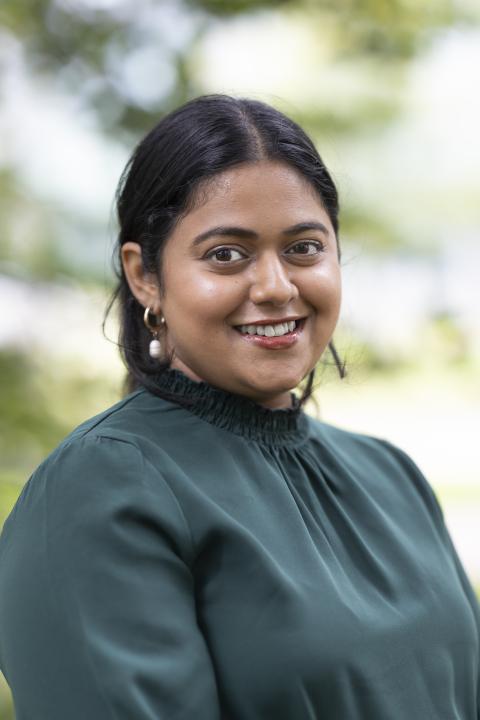
The end of training is the beginning of my journey, my marathon
Shakya Wickramanayake
She is working on an interdisciplinary project (Via Augusta) that investigates how infrastructure systems can collaborate as one system-of-systems, in which Rijkswaterstaat, the Port of Rotterdam Authority, ProRail, and Alliander are participating. The Rhine Delta Corridor is one such European infrastructure project, involving multiple pipelines and power connections between Rotterdam and the German Rhineland. Parties in the consortium meet every three to six months and discuss cases they bring in themselves. Shakya specifically brings in her expertise on law, governance, and technology regulation in an EU context.
Ambition? "Sri Lanka is facing a huge economic crisis caused by mismanagement. This has a huge impact on people's lives. My wish is to use the knowledge acquired here to create impact and advance my country's policy in the field of technology and governance. My present ambition is to use my knowledge to help ensure that the green transition is fair, inclusive, and just.”
The PhD Valorisation Program is designed for motivated doctoral candidates who want to (learn to) translate their research into impactful applications for society. In collaboration with the Tilburg University Knowledge Transfer Office (KTO), THRIVE Institute offers a four-month course in which you will learn (and do!) step-by-step how to apply your PhD research in practice, to create maximum societal value.
Date of publication: 30 October 2023


